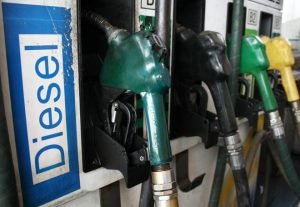 12 January 2018, News Wires — By the end of last year, hedge fund positions in diesel had fallen to a level normally associated with a sharp slowdown in economic growth if not an outright recession.
12 January 2018, News Wires — By the end of last year, hedge fund positions in diesel had fallen to a level normally associated with a sharp slowdown in economic growth if not an outright recession.
Most middle distillate fuels such as diesel, gasoil and jet fuel are consumed in freight transport (ships, trucks, railroads and air cargo) as well as manufacturing and mining.
Middle distillate consumption and prices are therefore more closely tied to the state of the economy than other refined fuels such as gasoline.
For the last 25 years, hedge funds and other speculators, collectively termed “non-commercial traders”, have mostly held a net long or bullish position in distillate futures and options.
The typical net long position reflects the overall expansion of the U.S. and global economies (expansions have been long while recessions have been relatively short).
In most cases, when non-commercial traders have switched to a substantial net short or bearish position the economy has been experiencing a sharp slowdown or is already in recession.
Large net short positions in 1995, 1998, 2002, 2010 and 2015 were all associated with slowdowns or recessions according to contemporary statements or minutes from the U.S. Federal Reserve’s Open Market Committee.
The exception was the net short position at the end of 2004, which came six months after the Fed noted a “soft patch” in the expansion, by which time the economy was improving enough for the Fed to raise interest rates again.
Crucially, not all these episodes ended in a recession; some were transient slowdowns in an uninterrupted expansion.
But given this history, the large liquidation of speculative long positions in diesel futures during the fourth quarter of 2018 was consistent with a substantial deterioration in the economic outlook.
Non-commercial traders started 2018 with a record bullish position in U.S. diesel futures equivalent to 64 million barrels of fuel, with more bullish positions held in options and European derivatives such as gasoil.
At the start of the fourth quarter, they still held a very large net long position equivalent to almost 48 million barrels, suggesting most speculators continued to anticipate a strong economic expansion.
But the net long position had disappeared by the end of November and turned into a net short of 8 million barrels by the middle of December, coinciding with the slump in equity markets and fears about the economic outlook.
Unfortunately, there is no more recent data on non-commercial positions because of the partial shutdown of the U.S. federal government.
By the middle of December, the net short position was not yet at a level signalling a slowdown or recession, but the trend was clear.
The fall in non-commercial diesel positions was consistent with other indicators of slackening economic activity including the decline in equity prices, yield curve inversion, business surveys and slowing freight growth.
At the end of 2018, the distillate market, like other financial markets and the economy, was balanced uncertainly on the brink of a slowdown.
What happens next depends critically on whether the U.S. and global economies accelerate again, settle into an extended soft patch, or slump into recession.
If the rate of economic expansion quickens again, hedge funds and other speculators will close some of their short positions and rebuild a significant net long position, exerting upward pressure on diesel and crude prices.
The process may already have started in recent days as traders become more optimistic the United States and China will reach an agreement, or at least a truce, in their trade war.
But if the economy settles into a more sluggish phase, or stalls and slips into recession, further hedge fund selling will put renewed downward pressure on diesel and crude.
- Reuters



